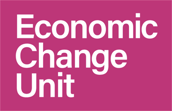About us
Who we are
For over a decade, the world has been experiencing a range of interrelated crises, including financial instability, widening inequalities and environmental breakdown. It has become clear that we cannot fix our greatest problems as long as our economy is unfair, exploitative and unsustainable, with wealth and power concentrated in the hands of a small number of people and corporations.
The new economics movement – the community of individuals, organisations and networks working for a fair, sustainable, prosperous and resilient economy – offers an abundance of proposals and real-world practice that show a better world is possible. To achieve economic systems change, we need to put power behind these ideas and translate them into major shifts in national and local policy. We need to grow collaboration within the movement, centre the voices and priorities of people on the sharp end of economic injustice, build allies in unexpected places, and amplify the arguments for change.
ECU exists to do this. We work to strengthen the movement of progressive think tanks, campaigners, and academics working to transform the economy, and to build support for its ideas in politics and society.
Our vision is of a fair, sustainable, prosperous and resilient economy where everyone can flourish and live a good life, and our work is guided by our three core values:
Humility
Transforming the economy is a huge and complex task. No single person or organisation has all the answers. To be most effective, we believe we need to be brave, humble, patient and low-ego.
Solidarity
Our commitment to fairness is a proactive one. This means working in an ongoing way to identify and tackle injustices and to dismantle systemic oppressions wherever we encounter them.
Collaboration
We believe we will only win the change we seek if we build broad-based, powerful alliances with people from a wide variety of backgrounds and perspectives.
Our work is challenging, fascinating, and fun – and, with rising levels of inequality, an unfolding climate emergency, overstretched public services and a growing concentration of corporate power, it couldn’t be more important.

